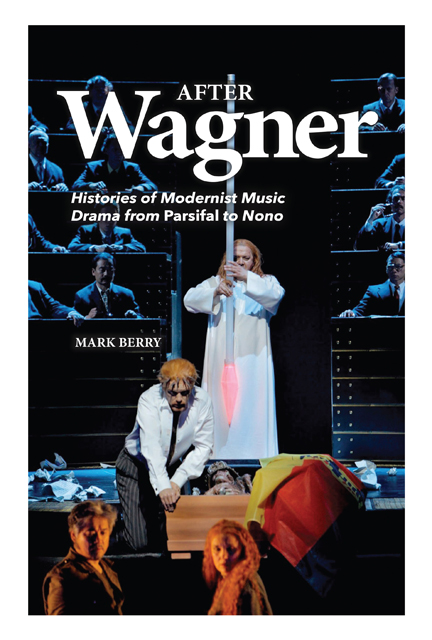Book contents
- Frontmatter
- Contents
- List of Music Examples
- Acknowledgements
- Dedication
- Introduction: ‘After Wagner’
- Part I In the Shadow of German Idealism: From Parsifal to Capriccio
- Part II Composition after the Second World War: From Germany to Italy, and Back Again?
- Part III Performance and the Fruitful Instability of the Work: From Parsifal to Nono
- Bibliography
- Index
1 - Wagner ‘After Wagner’: Parsifal
Published online by Cambridge University Press: 24 February 2023
- Frontmatter
- Contents
- List of Music Examples
- Acknowledgements
- Dedication
- Introduction: ‘After Wagner’
- Part I In the Shadow of German Idealism: From Parsifal to Capriccio
- Part II Composition after the Second World War: From Germany to Italy, and Back Again?
- Part III Performance and the Fruitful Instability of the Work: From Parsifal to Nono
- Bibliography
- Index
Summary
It may seem quixotic to take a last work as a starting point, but the reasons for this should become clear. With Parsifal, Wagner squares up to a challenge he has already presented to himself, and which he continues to pose to his successors. This work may therefore be considered to be Wagner’s own attempt at writing ‘after Wagner’ – and quite straightforwardly is his attempt to write musical drama ‘after’ the Ring.
Parsifal has generally been understood to represent the culmination of an ideological line different from that of his earlier works, perhaps, though only perhaps, with the partial exceptions of Tristan und Isolde and the later sections of the Ring. The revolutionary of the Dresden barricades in 1849 has finally sold out to the quietism of Schopenhauer and/or to Christianity – or, which amounts to the same thing, he has at last cast off the folly of his radical youthful flirtations. Thus Roger Scruton posits a ‘transformation of the Ring story, from Young Hegelian beginnings to a quasi-Christian or at any rate Schopenhauerian end’, in which ‘we witness a process of growing up in Wagner for which there is no equivalent in Marx’. Mention of Marx is far from incidental, since Wagner is thereby achieving an emancipation from Hegel such as Marx never does. The Ring, Scruton startlingly claims, is therefore ‘not about power or money or even love; it is about original sin’.1 This nicely sets the scene for the less ambiguously Christian milieu and message of Parsifal. Nietzsche was more hostile:
for what would a seriously intended Parsifal mean? Must one really see in it (as somebody has expressed it against me) ‘the abortion … of a hatred of knowledge, spirit, and sensuality’? A curse upon senses and spirit in a single hatred and breath? An apostasy and reversion to sickly-Christian and obscurantist ideals? And in the end even self-abnegation, self-striking-himself-out on the part of an artist who had previously striven with all of his will’s might to achieve the opposite, the highest spiritualisation and sensualisation in his art? . . One should remember how enthusiastically Wagner followed in the footsteps of the philosopher Feuerbach. Feuerbach’s slogan of ‘healthy sensualism’ sounded in the ‘30s and ‘40s to Wagner as to many other Germans – they called themselves Young Germans – as words of redemption.
- Type
- Chapter
- Information
- After WagnerHistories of Modernist Music Drama from Parsifal to Nono, pp. 26 - 63Publisher: Boydell & BrewerPrint publication year: 2014



